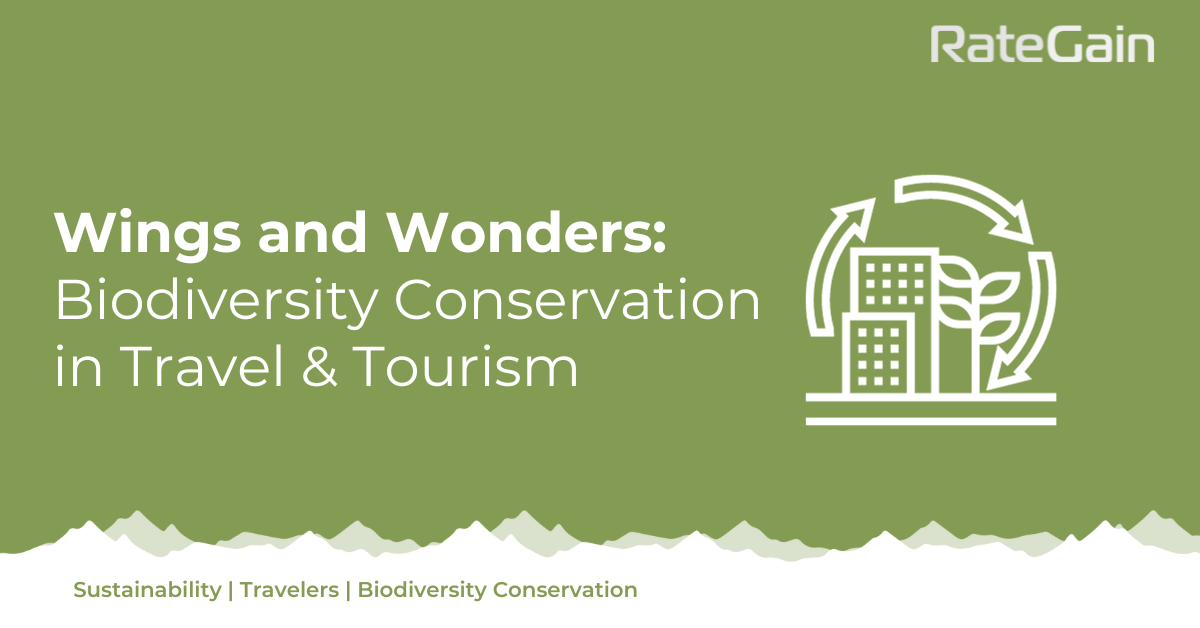Imagine trekking through lush rainforests, spotting rare birds, or witnessing a majestic lion’s roar on an African safari. These awe-inspiring experiences are the heart of travel, intimately connected to our planet’s incredible biodiversity. However, the impact of travel on these fragile ecosystems can’t be ignored.
Let us now explore the crucial role of biodiversity conservation and wildlife protection in the travel industry.
The Wonders of Biodiversity
Earth is home to a staggering variety of life forms, from tiny insects to massive whales. Biodiversity encompasses this rich tapestry of species, ecosystems, and genetic diversity. It provides essential services like clean air, water, and food, making it vital for human survival. When you travel, you often become a part of these ecosystems, whether you’re exploring coral reefs, dense forests, or vast savannahs.
Challenges Faced by Biodiversity
Unfortunately, human activities, including travel, have led to habitat destruction, pollution, and climate change. These factors contribute to the decline of many species. Wildlife trafficking, driven by the demand for exotic souvenirs and pets, poses another threat. Travelers, unknowingly or not, sometimes contribute to these problems.
Wildlife Protection and Biodiversity Conservation in Travel
-
The Travel Industry’s Responsibility in Biodiversity Conservation
The travel industry has a critical role in preserving biodiversity and protecting wildlife. It’s not just about ticking off the “eco-friendly” box in marketing materials. It’s a matter of ethical responsibility and ensuring that future generations can enjoy the wonders of our planet.
-
Conservation Through Education
One way the travel industry contributes is through educating travelers. When tourists understand the significance of the wildlife and ecosystems they encounter, they’re more likely to act responsibly. Eco-tour guides, informative brochures, and nature documentaries can all play a part in this.
-
Sustainable Tourism Practices
Sustainability is more than a buzzword. Sustainable tourism means minimizing your environmental and social impact while maximizing the positive benefits for local communities and conservation efforts. Travel companies are increasingly adopting sustainable practices, from eco-lodges powered by renewable energy to wildlife safaris that fund conservation projects.
-
Community Engagement and Empowerment
In many travel destinations, local communities are the stewards of their natural surroundings. Engaging with and empowering these communities economically can be a win-win. It helps protect biodiversity while also improving the livelihoods of the people who live alongside it.
-
Wildlife Protection
Travelers often seek encounters with wildlife. But these interactions must be responsible and respectful. For example, observing animals in their natural habitat, with minimal intrusion, is far preferable to supporting attractions that exploit animals for entertainment.
-
Supporting Conservation Efforts
Many travel companies partner with conservation organizations. These collaborations might involve funding research, protecting habitat, or even reintroducing endangered species. By choosing to travel with such companies, you can directly contribute to conservation efforts.
-
Your Role as a Traveler
As a traveler, you also have a crucial role to play. Research your destinations and choose operators committed to sustainability. Respect local regulations and guidelines, such as staying on marked trails in protected areas. Avoid purchasing products made from endangered wildlife or plants.
Wildlife protection and biodiversity conservation in travel are not just buzzwords but ethical imperatives. Travel can be a force for good, supporting both local communities and the preservation of our planet’s incredible biodiversity.
By making responsible choices, you can ensure that future generations can continue to explore and marvel at the wonders of the natural world.
 Deutsch
Deutsch Português
Português Italiano
Italiano Espanol
Espanol čeština
čeština ไทย
ไทย العربية
العربية Français
Français


